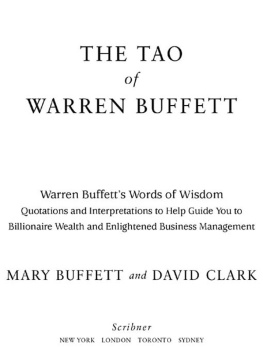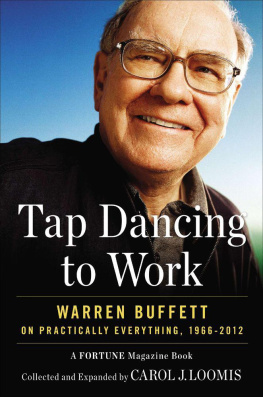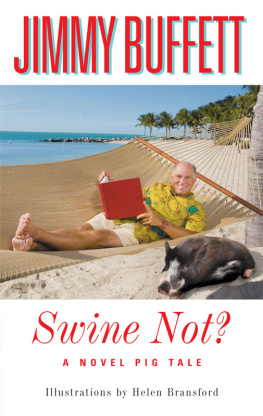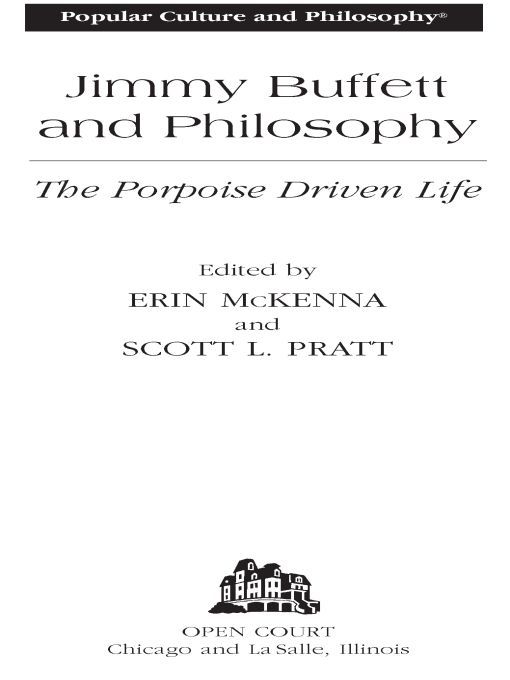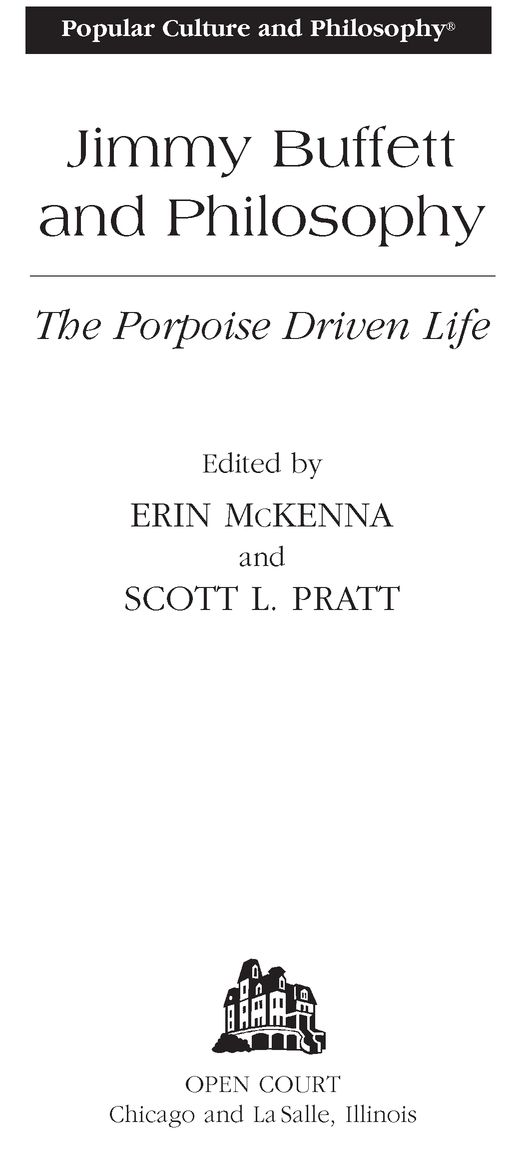Table of Contents
Popular Culture and Philosophy Series Editor: George A. Reisch
VOLUME 1
Seinfeld and Philosophy: A Book about Everything and Nothing (2000)
VOLUME 2
The Simpsons and Philosophy: The Doh! of Homer (2001)
VOLUME 3
The Matrix and Philosophy: Welcome to the Desert of the Real (2002)
VOLUME 4
Buffy the Vampire Slayer and Philosophy: Fear and Trembling in Sunnydale (2003)
VOLUME 5
The Lord of the Rings and Philosophy: One Book to Rule Them All (2003)
VOLUME 6
Baseball and Philosophy: Thinking Outside the Batters Box (2004)
VOLUME 7
The Sopranos and Philosophy: I Kill Therefore I Am (2004)
VOLUME 8
Woody Allen and Philosophy: You Mean My Whole Fallacy Is Wrong? (2004)
VOLUME 9
Harry Potter and Philosophy: If Aristotle Ran Hogwarts (2004)
VOLUME 10
Mel Gibsons Passion and Philosophy: The Cross, the Questions, the Controversy (2004)
VOLUME 11
More Matrix and Philosophy: Revolutions and Reloaded Decoded (2005)
VOLUME 12
Star Wars and Philosophy: More Powerful than You Can Possibly Imagine (2005)
VOLUME 13
Superheroes and Philosophy: Truth, Justice, and the Socratic Way (2005)
VOLUME 14
The Atkins Diet and Philosophy: Chewing the Fat with Kant and Nietzsche (2005)
VOLUME 15
The Chronicles of Narnia and Philosophy: The Lion, the Witch, and the Worldview (2005)
VOLUME 16
Hip Hop and Philosophy: Rhyme 2 Reason (2005)
VOLUME 17
Bob Dylan and Philosophy: Its Alright Ma (Im Only Thinking) (2006)
VOLUME 18
Harley-Davidson and Philosophy: Full-Throttle Aristotle (2006) Edited by Bernard E. Rollin, Carolyn M. Gray, Kerri Mommer, and Cynthia Pineo
VOLUME 19
Monty Python and Philosophy: Nudge Nudge, Think Think! (2006) Edited by Gary L. Hardcastle and George A Reisch
VOLUME 20
Poker and Philosophy: Pocket Rockets and Philosopher Kings (2006) Edited by Eric Bronson
VOLUME 21
U2 and Philosophy: How to Decipher an Atomic Band (2006) Edited by Mark A. Wrathall
VOLUME 22
The Undead and Philosophy: Chicken Soup for the Soulless (2006) Edited by Richard Greene and K. Silem Mohammad
VOLUME 23
James Bond and Philosophy: Questions Are Forever (2006) Edited by James B. South and Jacob M. Held
VOLUME 24
Bullshit and Philosophy: Guaranteed to Get Perfect Results Every Time (2006) Edited by Gary L. Hardcastle and George A. Reisch
VOLUME 25
The Beatles and Philosophy: Nothing You Can Think that Cant Be Thunk (2006) Edited by Michael Baur and Steven Baur
VOLUME 26
South Park and Philosophy: Bigger, Longer, and More Penetrating (2007) Edited by Richard Hanley
VOLUME 27
Hitchcock and Philosophy: Dial M for Metaphysics (2007) Edited by David Baggett and William A. Drumin
VOLUME 28
The Grateful Dead and Philosophy: Getting High Minded about Love and Haight (2007) Edited by Steven Gimbel
VOLUME 29
Quentin Tarantino and Philosophy: How to Philosophize with a Pair of Pliers and a Blowtorch (2007) Edited by Richard Greene and K. Silem Mohammad
VOLUME 30
Pink Floyd and Philosophy: Careful with that Axiom, Eugene! (2007) Edited by George A. Reisch
VOLUME 31
Johnny Cash and Philosophy: The Burning Ring of Truth (2008) Edited by John Huss and David Werther
VOLUME 32
Bruce Springsteen and Philosophy: Darkness on the Edge of Truth (2008) Edited by Randall E. Auxier and Doug Anderson
VOLUME 33
Battlestar Galactica and Philosophy: Mission Accomplished or Mission Frakked Up? (2008) Edited by Josef Steiff and Tristan D. Tamplin
VOLUME 34
iPod and Philosophy: iCon of an ePoch (2008) Edited by D.E. Wittkower
VOLUME 35
Star Trek and Philosophy: The Wrath of Kant (2008) Edited by Jason T. Eberl and Kevin S. Decker
VOLUME 36
The Legend of Zelda and Philosophy: I Link Therefore I Am (2008) Edited by Luke Cuddy
VOLUME 37
The Wizard of Oz and Philosophy: Wicked Wisdom of the West (2008) Edited by Randall E. Auxier and Phillip S. Seng
VOLUME 38
Radiohead and Philosophy: Fitter Happier More Deductive (2009) Edited by Brandon W. Forbes and George A. Reisch
VOLUME 39
Jimmy Buffett and Philosophy: The Porpoise Driven Life (2009) Edited by Erin McKenna and Scott L. Pratt
IN PREPARATION:
Transformers and Philosophy (2009) Edited by John Shook and Liz Stillwaggon Swan
Stephen Colbert and Philosophy (2009) Edited by Aaron Allen Schiller
The Golden Compass and Philosophy (2009) Edited by Richard Greene and Rachel Robison
Led Zeppelin and Philosophy (2009) Edited by Scott Calef
World of Warcraft and Philosophy (2009) Edited by Luke Cuddy and John Nordlinger
Monk and Philosophy (2010) Edited by D.E. Wittkower
Jimmy Buffett, Cultural Infidel
ERIN MCKENNA and SCOTT L. PRATT GEORGE A
Philosophy is not for me, laughing is my game.
JIMMY BUFFETT, Cultural Infidel
Jimmy Buffett and his music have affected millions of people around the world. His work spans generationshe has been performing for over forty yearsand genres. Is Buffetts music just a good time, or is more going on?
Jimmy Buffett and Philosophy explores the work of a self-proclaimed non-philosopher and shows that Buffetts work is indeed philosophical. Through an examination of his songs, books, concerts, and his fans, the writers also use Buffetts work to exemplify and clarify important philosophical issues such as the meaning of community, personal identity, the nature of being, and the ideas of beauty, pleasure, and responsibility.
Unlike many of the musicians discussed in Open Courts Popular Culture and Philosophy series (and elsewhere), Buffett not only writes and performs his own music, he also reflects on his music and its meaning in his autobiography, A Pirate Looks at Fifty, and in the context of his short stories and novels. If anything is clear from his published stories, its that the musicwhether it is taken as simple or simply funemerges from his experience and helps him to make sense of good times and bad. For better or worse, his ability to engage his own life connects broadly with others and provides a starting point for new and meaningful experience.
Buffetts fans, called Parrotheads, attend concerts, buy his books and albums, and participate in local Parrothead Clubs. There are more than two hundred clubs around the world, most of which participate actively in charitable work. During the last six years, local Parrothead Clubs raised over thirteen million dollars and provided nearly two million volunteer-hours. These clubs represent another dimension of how the character of Buffetts work provides a framework for more than just parties. In addition to members of Parrothead clubs (probably including fifteen to twenty thousand), his annual concert tours sell well over two hundred thousand tickets. This group of fans and concertgoers crosses boundaries of generation, class, race, and gender. Their commitment speaks to the meaning many find in Buffetts work.





